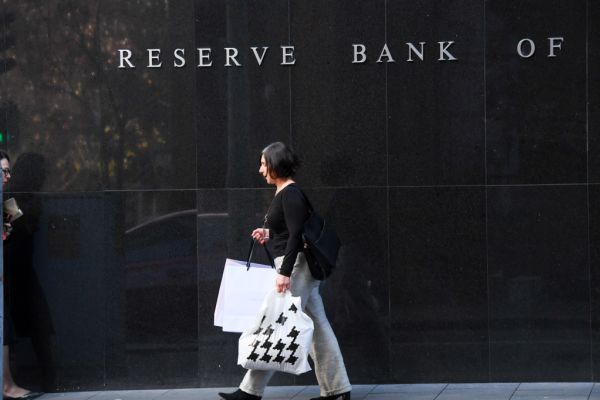
October interest rate announcement: RBA keeps cash rate at record low despite calls for regulator intervention. Domain Reports
Despite the continued rapid rise in house prices, the Reserve Bank of Australia announced on Tuesday that the cash rate will stay at the record low of 0.10 per cent for the eleventh month in a row. It also said that it’ll hold its quantitative easing program of purchasing $4 billion a week of government debt steady.
But that makes it only more likely that the RBA will be keen to see action from another direction to help cool the heat in the real estate market, says Stephen Koukoulas, managing director of Market Economics and a former chief economist of Citibank Australia.
“They may want to see a little bit of spice added to the stew with some macro-prudential measures to tighten lending standards,” he said. “The Commonwealth Bank has already done a little of that off their own bat because, from the banks’ perspective, they don’t want to lend money to people who can’t repay them.
“They don’t want to cut back on their business, but with prices rising so high, they don’t want to run the risk of losing money down the track if people can’t afford to service their mortgages.”
Many economists now expect the Australian Prudential Regulation Authority (APRA) to introduce measures later this year to restrict riskier borrowing with such a runaway market, fuelled by continuing high levels of FOMO among buyers. That could mean putting a cap on mortgage lending of no more than six times an applicant’s annual income, or pegging lending limits lower when compared to the value of the property.
The RBA would prefer those kinds of measures to any movement at the moment in the interest rate. “When the lockdowns are over and things return to normal, we’re likely to be in a pretty good market, and they don’t want to either tighten, or relax, conditions too early,” said Mr Koukoulas.
“So, they’d like to see maybe a change to loan-to-income ratios, or loan-to-valuation ratios. They’d like to see the market cool off – and without an interest rate hike. It’s like gentle persuasion rather than using a sledgehammer.”
Nationally, monthly house price growth is at 1.5 per cent on the latest CoreLogic figures, down from its peak in March of 2.8 per cent, but still unnaturally high. That rate of growth might continue to fall and eventually peter out, however, as the supply of new listings on the market increases, and the volume of new dwellings built grows.
Yet there’s also the risk that there’ll again be pressure on prices once international borders open and overseas and expat purchasers return to Australia.
“I think it’s true that the RBA is thinking of macro-prudential measures that APRA may, or may not, agree to take in consultation with the RBA,” said David Bassanese, chief economist of BetaShares, and ex-Treasury, OECD and Macquarie Bank.
“They do have concerns about the strength of the housing market. Increasingly, the RBA is moving from hovering on the sidelines of the market’s recovery from COVID-19 to worrying that things are getting a bit hot. They saw a house price revival as a way of getting the economy moving again through the wealth effects, but they’ll be getting worried now about its strength.”
As this housing boom has been led by owner-occupiers rather than investors, it might be seen as unfair to lift interest rates too early to crunch down on buying, especially with so many promises that the rate wouldn’t change before 2024.
“But if you are so worried about the market, I would question why you’re keeping the interest rate where it is,” Mr Bassanese said. “I would also argue there’s a case for reconsidering the target inflation rate the RBA has said it wants to see of two to three per cent before interest rates go up. That’s out of date and now could be better at under two per cent.”
While the International Monetary Fund also last month recommended a review of the RBA’s performance in light of changing world circumstances, our housing market is quite different to those of other countries, says Ray Ellis, the chief executive of First National Real Estate.
“But the IMF doesn’t take into account Australia’s passion for property, which is unrivalled in the world,” he said. “So, yes, prices have dramatically increased, particularly in Sydney and Melbourne despite the lockdowns, but everyone’s factored in that interest rates will be low for the next two or three years.
“If there’s any change, it should come through APRA but Australians have saved a lot of money in the past 18 months by not travelling and have used that to pay down debt, and arrears and defaults are low. So, there’s no evidence that the strength of the market is causing financial duress.”




